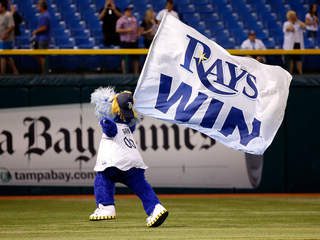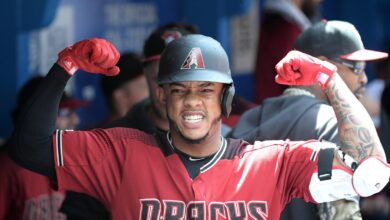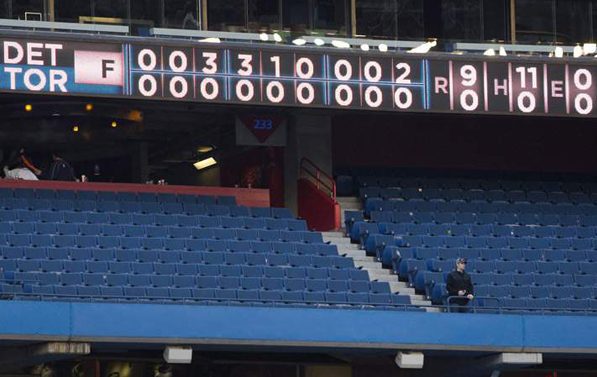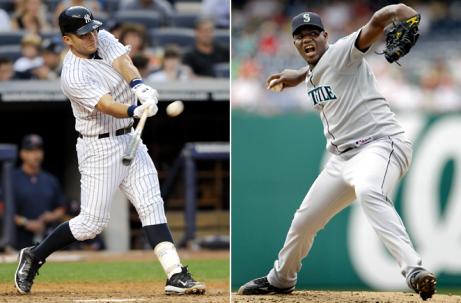
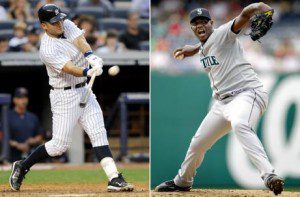
Most of us are familiar with this ancient Chinese proverb: “No matter how hot she is, someone, somewhere is tired of her crap.”
Relationships of a sexual nature rarely work out. I’m not trying to be negative. It’s just the mathematics of the situation. Half of all marriages end in divorce. Well, most relationships don’t even get to marriage. And there is almost an infinity of reasons that relationships don’t work.
Sure, they start off fine with varying combinations of love, admiration, respect, social compatibility and bodily fluids. But people are complicated. Soon the complications creep in, the strength of the relationship is tested and usually fails. More often than not, the relationship doesn’t just fail, it shatters into a millions pieces with relationship shrapnel scattering in all directions cutting through everyone within the blast radius.
Many times, a couple is composed of two people who, together, are terrible, and probably were from the get-go regardless of all claims of “true love,” “amazing sex” or “smokin’ hot abs.” And it’s probably best for all parties – in the relationship or even relationship-adjacent – for these two to go their separate ways, so maybe with other people they could be the decent people they actually are.
There isn’t a man, woman, boy or girl among us who leaves a relationship with another woman, man, girl or boy and truly hopes that person finds happiness without them. This is just part of being a human person. Sure, we can say we want them to be happy or to do well or to find love again.
But the truth is that we don’t really want that. What we really want is for them to be sort of happy, to do kind of well or to find something that vaguely resembles love again, but doesn’t come close to approaching the depth and breadth of love that we had together.
It doesn’t matter who actually initiated the break up, who cheated, who couldn’t commit or who called the police and claimed you were a stalker even though you had been dating for a year. Both parties have to go their separate ways, but neither wants the other to then find the greatest love of all and get married and post happy pictures together on Facebook. That would mean there might have been something wrong with them. And there is nothing wrong with me!
The reason I’m bringing this up is because there’s a very similar phenomenon in baseball: A free-agent player joins a team and there’s a lot of love, admiration, respect, compatibility and, yes, even bodily fluids (sweat from playing baseball, you perverts!).
But, like sexual relationships, it usually doesn’t quite work out for any number of reasons. Maybe the player doesn’t live up to expectations, maybe the team gets worse or just doesn’t get better and the player was supposed to make difference – he didn’t. And they usually don’t. A lot of this disappointment is because players are getting paid for what they’ve done in the past. They hit 40 home runs last year and their new contract reflects an expectation that they’ll do that again. Of course, a lot of these expectations fail to take into account much in terms of true reality of the player’s value. Like the girl who thinks she can be the one to tame an over-sexed jerk because he posted a poem (that someone else wrote) on her Facebook wall – which, by the way, he’s done to a dozen other girls – this week.
The problem with “breaking up” in baseball is the contracts. They are guaranteed – every dollar and every perk for every year of the deal. So, even if all parties agree that the relationship has become toxic, it’s not very easy to just move on to greener pastures.
Sometimes when things go south, you’ll see players “demand to be traded” because they just can’t play for that team anymore or the new manager is a jerk or they want to play for a winner. None of which are true, by the way – otherwise they would have signed with a winning team that had a nice manager … for less money! And you’ll never hear a single one of them ever in the history of sports say, “I hate it here so much that you can release me from my contract and you won’t have to continue to grossly overpay for my disappointing production.”
The solution to this scenario is found in the existence of other similarly absurd contracts on other teams and the under-utilized “challenge trade.” A challenge trade is when two teams swap individual players for each other in the hopes that a change of scenery will help bring out their potential or to better fit each team’s needs.
This isn’t minor-league prospects for an established star. This is an established star for an established star, an elite prospect for an elite prospect, or in our case, a failing, big-money contract for a failing, big-money contract. Of course, in sexual relationships, we call this sort of thing “wife swapping” or “swinging” and is done by “swingers” – as in “to swing.”
When players aren’t performing up to expectations, maybe what they need is a change of scenery. A new team might actually help them shake off some of the baggage they’re carrying around and perform even just slightly better. A new city means a new place to live, and new places to eat and not the same old places that have become a mental burden or strain over the years.
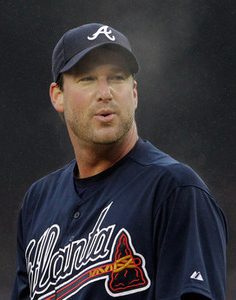
It’s like when Derek Lowe left Los Angeles for a new team in a new city because he couldn’t stand to be near his wife (now ex) who constantly made him uncomfortable about cheating on her. So, he went to Atlanta and he could go bang whomever he wanted. And this sort of ease-of-mind helped him have a nice first year with the Braves. Or like when Manny Ramirez had become a distraction in Boston and was traded to L.A. where he was revitalized by the new environment and the adulation and maybe finding better steroids (sorry, Manny, I mean female fertility drugs).
Trading players is more a part of baseball than any other sport. So, it’s a little surprising that challenge trades aren’t really done. Player trades usually involve a prospect for a veteran, like so many years ago when Jeff Bagwell was traded from the Red Sox to Houston for a few months use of relief pitcher Larry Andersen. Or when the Braves got a young fella by the name of John Smoltz from the Tigers for the aged Doyle Alexander.
Challenge trades involving young players are also quite rare, though last season the Yankees and Mariners hooked up on the Michael Pineda for Jesus Montero trade – two top prospects with huge potential traded to better fit each team’s needs. This is also how Josh Hamilton ended up on the Rangers – he was traded for Texas’ top pitching prospect at the time Edinson Volquez.
But why are these challenge trades so rare? It’s easy. Fear. A challenge trade is one of the clearest ways to see who “won” a trade. In the above examples, the Rangers “won” the Hamilton trade and so far it looks like the Mariners “won” the Montero trade because Pineda is out for the season with an injury. It’s fairly black and white. So the team’s general manager has to hope that the player he gets does well, but also that the player he sends away doesn’t do as well.
And when you’re talking about trading big-salary guys, what happens if the guy you signed for a ton of money who under-performed for you goes somewhere else and plays like a star again? The GM would be worried that people think that means there was something wrong with how his team functions. And there is nothing wrong with how his team functions!
There are so many “what ifs” that it’s a safer move to just hang on to the bad contract and hope that he gets injured and the insurance money covers most of the expense – right, John Lackey and the Boston Red Sox?
This “what if” stuff happens in fantasy baseball leagues, as well, and is the number-one problem with trying to make trades. You don’t want to trade away a player who then goes nuts and becomes an MVP candidate, and have the player you received get injured and sink your team.
But life is full of “what if.” And it’s better to do something than nothing. Sure, a team might regret a bad salary swap, but first there will be relief and new hope – any regret will come later. And, as our politicians are so good at demonstrating, the future is someone else’s problem. Reds GM Walt Jocketty recently signed two insane contract extensions for a couple star players, and these contracts will assuredly be a source of regret in the future … but, for some other schmuck who’s the GM of the Reds while Walt is sipping mai tais on the beach.
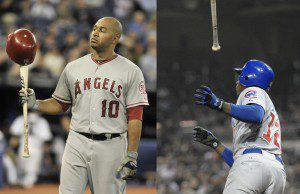
I want to see financial disasters like Barry Zito, Vernon Wells, Alex Rodriguez, Alex Rios and Alfonso Soriano traded for each other. What’s the worst that could happened? (Besides one player regaining his elite form and the other player finding new levels of terribleness.)
Derek Jeter should be on this list, but Yankees fans all wear those Jeter-colored glasses and can’t understand just how bad he’s gotten. The good news for them is they can enjoy Derek forever with the statue of him they built … that plays shortstop in every game.
Joe Mauer is another guy whose contract is just awful. But the Twins will never trade him. He’s a fan favorite. And that’s part of why they will be terrible for a long time. The good news is that, though they’ll be stinking up the joint, the joint is quite a lovely stadium.
These terrible contracts will be a part of baseball for eternity. It only takes one desperate/stupid/drunk GM to overpay. And once that contract is signed, it’s signed.
Give me more challenge trades. We already know you screwed up when you signed the guy in the first place. Swap your bad salary guys. And let’s swap some elite prospects. Cripes! Of the Dodgers top 10 prospects, nine are pitchers. They don’t need that many pitchers. There has to be some team out there that needs pitching. Kansas City, I’m talking to you.
Come on, GMs. Live a little. It’s time to move on from that bad relationship and hope the next one works out better – though it probably won’t.




